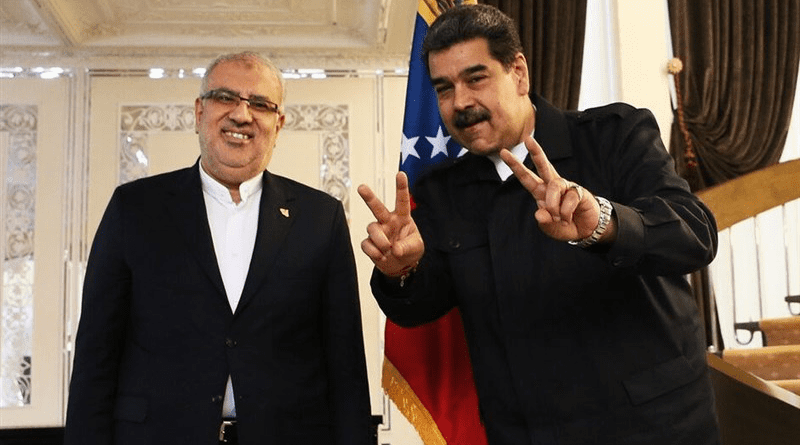How Iran Is Creating A Sanctions-Proof Economy – OpEd
By Arab News
By Dr. Majid Rafizadeh*
There was a time when US sanctions against the Iranian regime were extremely effective. However, the latest developments indicate that Washington’s sanctions on Tehran have become less successful in deterring the regime.
Prior to 2015, when the nuclear deal was reached, sanctions against the Islamic Republic were successful for several reasons. First of all, the US was capable of convincing Russia and China to join it in imposing pressure on Tehran. This led to a consensus among the five permanent members of the UN Security Council (the UK, France, Russia, China and the US) that allowed it to pass several resolutions sanctioning Iran. The first, UNSC Resolution 1696, which was passed in 2006, called on Iran to “suspend all enrichment-related and reprocessing activities, including research and development,” with the International Atomic Energy Agency tasked with reporting on Iran’s compliance.
The five permanent members of the UNSC also unanimously called on all countries to freeze the financial assets of Iranian entities linked to the nuclear program, as well as to sanction the supply or sale of nuclear-related equipment and technology. Resolution 1803 of 2008 imposed restrictions on Iranian bank transactions and called on countries to inspect Iranian ships and cargo planes where there were reasonable grounds to believe that the regime was smuggling prohibited products.
But there now seems to be too big a gap to bridge between the global powers, with the US, the UK and France on the one hand and Russia and China on the other. For example, the US in 2020 attempted to prevent the 13-year-old arms embargo against Iran from expiring. But the Security Council voted to allow it to expire, with Russia and China exercising their power of veto and another 11 members abstaining. The US also could not garner enough support to reinstate UN sanctions against Iran. As then-Iranian President Hassan Rouhani pointed out: “I don’t remember (in the past) the US preparing a resolution for months to strike a blow at the Islamic Republic of Iran, and it garners only one vote (of support, from the Dominican Republic).”
To understand how this global division is assisting the Iranian regime in creating a sanctions-proof economy, it is important to examine where the significant portion of Iran’s revenues come from. The Islamic Republic reportedly has the second-largest natural gas reserves and the fourth-largest proven crude oil reserves in the world, with the sale of oil accounting for nearly 60 percent of the government’s total revenues and more than 80 percent of its export revenues. Several Iranian leaders have hinted at the country’s major dependence on oil exports. For instance, Rouhani acknowledged in 2019: “Although we have some other incomes, the only revenue that can keep the country going is the oil money.”
In order to further seize the opportunity offered by the current division among global powers, the Iranian regime is signing long-term agreements with its oil clients to permanently insulate its economy from the negative impacts of the US sanctions. For instance, China and Iran announced in January the launch of a comprehensive cooperation plan. This refers to the 25-year deal that was reached between Tehran and Beijing last year. One of its terms is that China will invest nearly $400 billion in Iran’s oil, gas and petrochemicals industries. In return, China will have priority to bid on any new project in Iran that is linked to these sectors. China will also receive a 12 percent discount and can delay payments by up to two years. It will also be able to pay in any currency it chooses.
Such a comprehensive deal will clearly help the Iranian regime more easily circumvent US sanctions, gain access to funds, empower its militia and terror groups in the region and continue advancing its nuclear program.
It is worth noting that Iran is currently exporting more than 1 million barrels a day, about 800,000 bpd of which is going to China. In fact, hard-line President Ebrahim Raisi last month boasted about Iran’s increasing oil sales, saying they “have doubled. We are not worried about oil sales.”
And Iran this month also signed a 20-year cooperation agreement with Venezuelan leader Nicolas Maduro to expand the ties between their oil and petrochemical industries, as well as their militaries.
In summary, the US sanctions against the Iranian regime have become less effective over time due to the fact that the Iranian leaders are creating a sanctions-proof economy by strengthening their ties with nations like China and Venezuela and ensuring the sale of their oil.
- Dr. Majid Rafizadeh is a Harvard-educated Iranian-American political scientist. Twitter: @Dr_Rafizadeh

